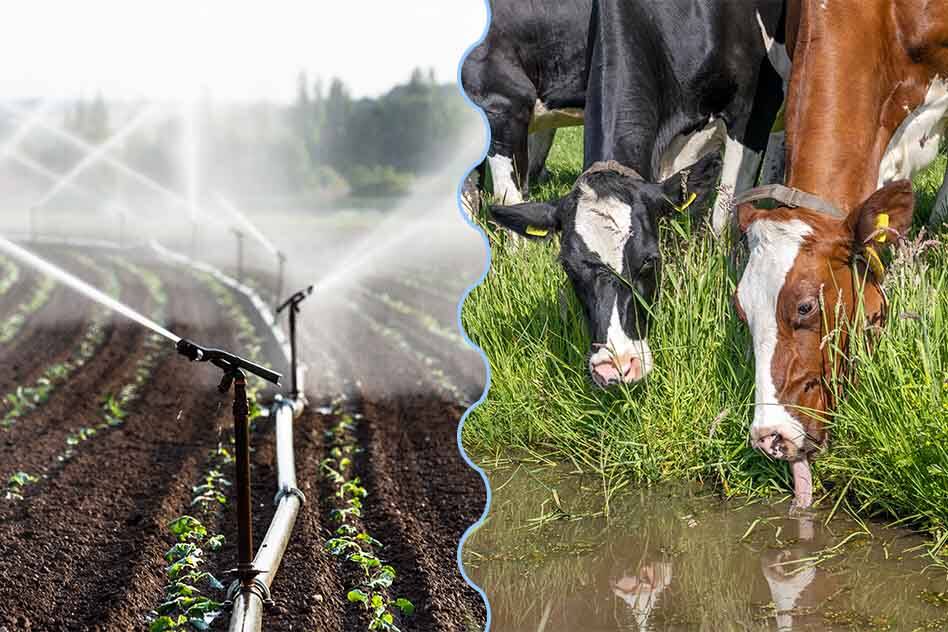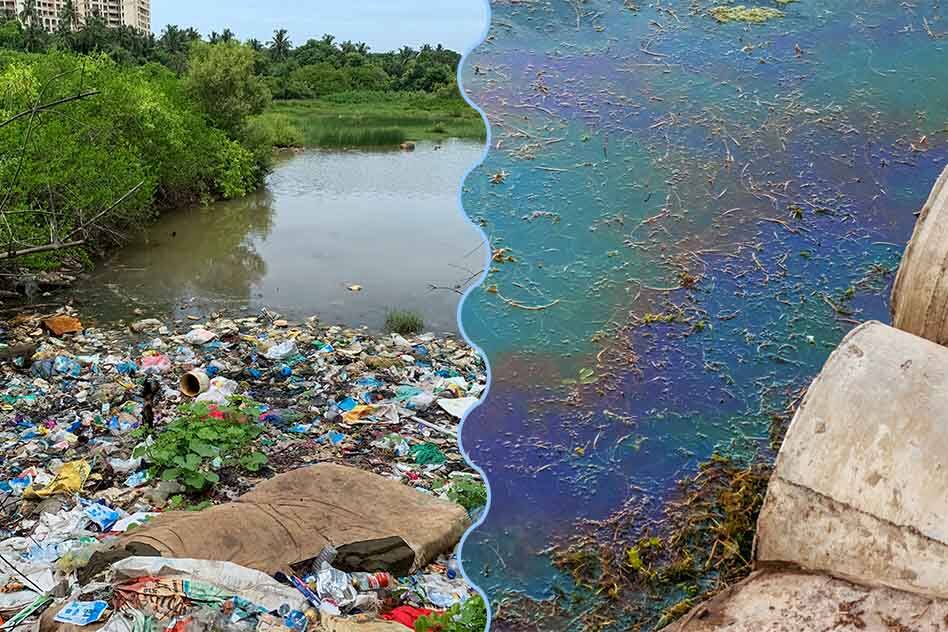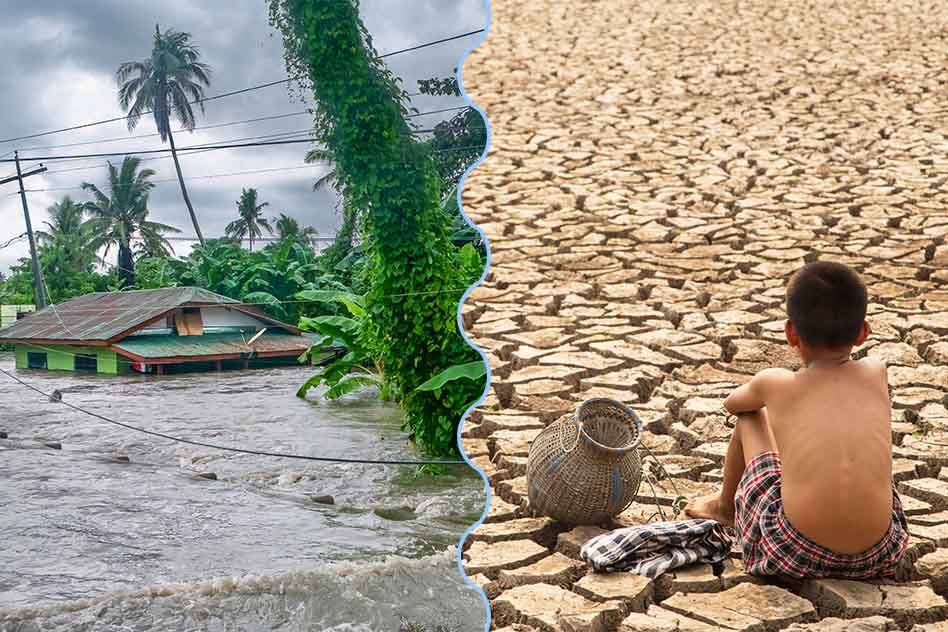The Importance of Water Sustainability and Our Future
Posted on: August 22, 2023
Water is a critical natural resource for humankind and the future of our planet. Although water is our largest natural resource, it’s both finite and irreplaceable. That’s why water sustainability is vital to the future well-being of humans, marine conservation and socio-economic development.
Climate change is irreversibly affecting water accessibility as extreme weather events increase, leading to more droughts and floods. Similarly, pollution, growing demand and depletion of our much-needed aquifers are threatening the welfare of all living things, from plants to humans.
Water is key to improving global health and productivity — which means so is water sustainability. Read on to learn more about how water conservation practices can help combat the climate crisis and strengthen socio-economic systems.
What is water sustainability?
Water sustainability refers to the maintenance and availability of clean water that can continue to fuel future generations for consumption, agricultural processes and biodiversity. However, our water supply is facing a distinct number of challenges. The agricultural industry is currently the largest consumer of freshwater due to its immense need for irrigation, as well as for livestock.

Meanwhile, there’s been an explosive industrial revolution in the past few decades which has led to growing populations and urban centers, which are affecting water availability and negatively impacting pollution rates.
On an environmental scale, climate change is leading to more droughts, storms and floods than previously recorded in history. This damages the affected areas’ infrastructure, as well as leads to unreliable water systems and food shortages. From growing human populations, which threaten water supplies, to extreme weather events, sustainability and water management need to become a larger priority for all.
Looking for deeper insight into water sustainability and the global water crisis? Check out J.A.A. Jones’ “Water Sustainability: A Global Perspective” for a comprehensive discussion of water sustainability. As Chair of the IGY Commission for Water Sustainability, J.A.A. Jones uses the latest mapping techniques to explain the challenges, opportunities and possible solutions that face water management worldwide.
To explore how water use is intrinsically tied to food, energy and sustainability, we recommend Velma I. Grover and Amani Alfarra’s “Water, Sustainable Development and the Nexus: Response to Climate Change.” This text draws each reader’s attention to the “interrelated nature” of global resource systems, and how water sustainability can create solutions for the future of the environment, economics and society as a whole.
Examples of water sustainability practices and solutions
Sustainable water systems and practices should ensure that water can meet consistent needs without sacrificing water availability and quality for future generations. Although many of these solutions involve water, they don’t need to. There are water sustainability approaches that remove the use of water where it originally was needed (e.g., waterless toilets or car washes). Ideal sustainability practices should aim to hit three primary goals: feasibility, accessibility and environmental responsibility.
Below are some examples of water sustainability solutions that can help alleviate water stress:
Groundwater
Groundwater is an essential global resource of freshwater — but it’s quickly being affected by unsustainable water practices. Currently, groundwater is declining and being increasingly polluted, which is decreasing the global water supply.
The solution to these problems would be sustainable groundwater management. To achieve this, there would need to be increased access to information regarding groundwater policies, as well as comprehensive legislation to address local groundwater challenges.
For more information, explore Charles A. Job’s “Production, Use, and Sustainability of Groundwater: Groundwater Economics.” This book dives into various applications of sustainable groundwater practices and the economics of groundwater within our larger ecosystem.
To understand the full scope of importance that groundwater carries for sustainable development, explore Viviana Re, Rodrigo Lilla Manzione, Tamiru A. Abiye, Aditi Mukherji and Alan MacDonald’s “Groundwater for Sustainable Livelihoods and Equitable Growth.” Written for those with a background or interest in geology, engineering or environmental sciences, this text shows through 19 unique case studies how groundwater improves global communities.
Surface water
While surface water covers a large portion of the earth, clear freshwater is unequally distributed globally. Similarly, due to human activity, many sources of surface water are polluted and cannot be used for drinking water without treatment. This has created an increased global water demand for safe drinking water.

Surface water can be polluted by heavy metals, fluoride, dyes and more, but there are ways to remove them. One sustainable approach is bioremediation. This refers to the practice of introducing or increasing the presence of microorganisms or other life forms that can clean polluted water. During bioremediation, these microorganisms consume and break down the pollutants, leaving clean water, or “reclaimed water,” behind.
Want to learn more about the science behind bioremediation? Explore Sanjay K. Sharma’s “Bioremediation: A Sustainable Approach to Preserving Earth’s Water.” Written for students, scientists and researchers, this helpful text discusses the latest research into water remediation as a promising green technology and the chemistry principles behind it.
Desalination
As the name suggests, desalination is the process of removing salt from water. The earth is covered in saltwater, so if desalination can be sustainably practiced, it would lead to increased global water accessibility. However, current practices require higher energy demands, which can make desalination unsustainable. A possible solution to this is to utilize renewable energy sources, such as solar power desalination.
What is marine conservation?
Marine conservation, also known as ocean conservation, is closely related to water sustainability. After all, our planet relies on a healthy ocean to help fuel its global ecosystem. Marine conservation specifically aims to protect and preserve the ecosystems that exist in our water systems globally.
However, as human populations continue to negatively impact the climate crisis, the ocean is similarly seeing adverse effects. From overexploitation to unsustainable water management, marine life has been directly impacted. Similarly, global warming has increased ocean temperatures and caused the sea level to rise as glaciers are melting.
All of these factors are harming ocean habitats, which then threaten the survival of biodiversity across the planet. An important way to educate students about the importance of marine conservation is to celebrate the biodiversity that exists within the earth’s oceans.
For example, the Coral Triangle, located between the Indian and Pacific Oceans, is filled with a wide variety of marine life — and 75% of the world’s coral species! For students interested in learning more about marine biodiversity, a great resource is Alan J Powderham and Sancia van der Meij’s book, “At the Heart of the Coral Triangle: Celebrating Biodiversity.” Filled with one-of-a-kind ocean photography and informative research, this text emphasizes the importance of protecting biodiversity through marine conservation, especially before it’s too late to save it.
Benefits of water sustainability and marine conservation efforts
Water sustainability and marine conservation are intrinsically linked together. One can help improve the other and vice versa. But what are some tangible benefits to these principles? Below is a list of reasons that water sustainability and marine conservation are essential for our current and future generations:
● Preserves biodiversity: Removing pollutants and mitigating environmental harm helps to save natural lifecycles.
● Reduces drought and water shortages: Having accessible water should be a right, not a privilege.
● Promotes sustainable business processes: Introducing sustainable conservation efforts into various industries, from agriculture to urban centers, can help fight climate change.
● Maintains healthy communities: Water is an essential resource for life. To keep our communities healthy and thriving, water sustainability is the solution.
● Improves economies globally: Reducing demand for and depletion of water resources will combat rising costs, health hazards, decreased supplies, global conflicts and more.
For additional research on the cost benefits of water sustainability practices, read Charles A. Job’s “Cost-Benefit Analysis of Groundwater Policy and Projects, with Case Studies.” With extensive case studies on groundwater issues and policies, this book explores the fundamental economic benefits to sustainable groundwater projects.

Why do water sustainability and marine conservation matter?
As the largest ecosystem on Earth, the ocean drives most of the global systems that make our planet habitable for living organisms. From rainwater to drinking water and the oxygen we breathe; the ocean is the pushing force for all of these needs. Therefore, water sustainability cannot be fully understood and evaluated without the inclusion of marine conservation.
An ideal resource for those with an academic and career focus in water resource management or sustainability is Ramesh S.V. Teegavarapu, Elpida Kolokytha and Carlos de Oliveira Galvão’s “Climate Change-Sensitive Water Resources Management.” With multiple assessments and studies as evidence, this text provides an overview of climate change-sensitive water resources management. To get an in-depth understanding of sustainability within saline environments, such as the ocean, students can explore Katarzyna Negacz, Pier Vellinga, Edward Barrett-Lennard, Redouane Choukr-Allah and Theo Elzenga’s “Future of Sustainable Agriculture in Saline Environments.” Using current research and practical cases, this book highlights the global potential and importance of saline agriculture.
Learn more about water sustainability
Ready to dive into the world of water sustainability and marine conservation on a wider scale? Check out our extensive range of related books here.

